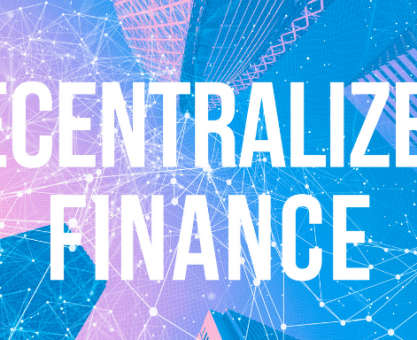Executive Summary
-
Discover how Decentralized Finance (DeFi) is reshaping small business lending.
-
Learn the benefits, challenges, and potential of DeFi solutions.
-
Explore a real-world case study showcasing DeFi‘s impact on small businesses.
-
Gain expert insights and strategic advice for leveraging DeFi in 2025.
Introduction
In today’s rapidly evolving financial landscape, small businesses often face challenges accessing traditional lending channels. Enter Decentralized Finance (DeFi), a revolutionary solution poised to disrupt the status quo. By offering more accessible and efficient lending options, DeFi is transforming how small businesses secure funding. This article will explore how DeFi is revolutionizing small business lending in 2025, the benefits it offers, potential risks, and strategic insights for leveraging these solutions.
Definitions / Context
Decentralized Finance (DeFi): A blockchain-based form of finance that eliminates intermediaries like banks, thus enabling peer-to-peer financial transactions.
Small Business Lending: The process through which small enterprises secure funding to support operations, growth, and development.
DeFi solutions provide an alternative lending landscape, offering decentralized platforms where small businesses can access loans without traditional financial institutions.
Benefits / Pros
-
Accessibility: DeFi platforms are globally accessible, allowing small businesses worldwide to apply for loans without geographical restrictions.
-
Lower Costs: By removing intermediaries, DeFi reduces transaction fees, making it a cost-effective option for borrowers.
-
Transparency: Blockchain technology ensures all transactions are recorded and transparent, enhancing trust.
-
Speed: Automated smart contracts ensure quicker loan approvals and disbursements.
Risks / Cons / Challenges
-
Regulatory Uncertainty: The rapidly evolving nature of DeFi means regulatory frameworks are still developing, posing compliance risks.
-
Security Concerns: Smart contract vulnerabilities can lead to potential security breaches.
-
Volatility: DeFi platforms often depend on cryptocurrencies, which can introduce volatility into loan terms and repayments.
How to Secure a Loan Through DeFi
-
Choose a DeFi Platform: Research and select a reliable DeFi lending platform.
-
Connect Wallet: Connect your digital wallet to the platform to access services.
-
Select Loan Terms: Choose loan amount, duration, and collateral type.
-
Smart Contract Execution: Upon agreement, a smart contract is executed to manage the loan.
-
Receive Funds: Funds are disbursed to your wallet promptly upon contract execution.
A small artisanal coffee business, struggling to expand due to traditional lending barriers, turned to DeFi for funding. By leveraging a DeFi platform, they secured a low-interest loan, enabling them to open a second location and increase revenue by 40% over a year.
— Artisanal Coffee Business Case
Expert Tips / Strategic Insights
-
Diversify Collateral: Use a mix of cryptocurrencies to reduce volatility risks.
-
Stay Informed on Regulations: Regularly update yourself on regulatory changes affecting DeFi.
-
Utilize Smart Contracts Wisely: Understand smart contract terms before committing.
Tools / Resources / Calculators
-
DeFi Pulse: Track DeFi platform analytics and statistics.
-
Crypto Loan Calculators: Estimate loan costs and repayment schedules.
Conclusion
Decentralized Finance is revolutionizing small business lending by offering more accessible, efficient, and transparent solutions. While DeFi presents some risks, its benefits make it a viable alternative to traditional lending. As DeFi continues to evolve, small businesses can leverage these solutions to secure funding and drive growth.























